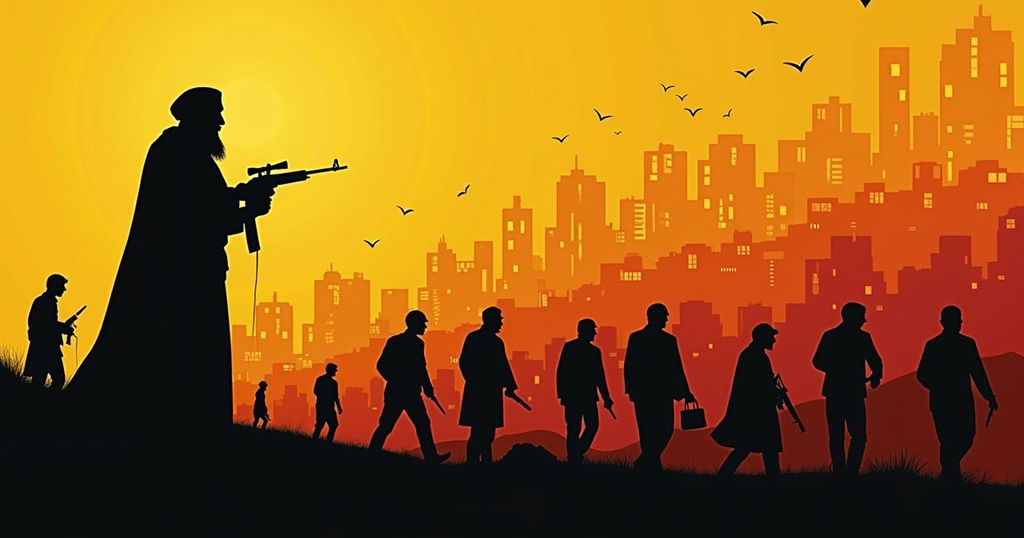The Legacy and Potential Demise of Hassan Nasrallah: Implications for Hezbollah and Regional Stability

Hassan Nasrallah, leader of Hezbollah, has allegedly been killed in an Israeli airstrike, marking a pivotal moment for the organization and the region. He has led Hezbollah for 32 years, cultivating its military strength with Iranian support. His absence is likely to shift power dynamics within the group amid the ongoing Gaza conflict and rising threats from Israel.
Hassan Nasrallah, the leader of Hezbollah, has faced the possibility of death following Israeli military claims of his elimination in an airstrike targeting the group’s headquarters in southern Beirut. Nasrallah has been at the helm of Hezbollah for 32 years, during which he has transformed the group into a formidable military power in the region, supported by Iran. Despite Israel’s assertions, Hezbollah has not confirmed these reports about Nasrallah’s status. Under his leadership, Hezbollah has been recognized for its strong resistance against Israeli forces, earning him both admiration from supporters and condemnation from detractors who regard him as a terrorist figure and a proxy for Iran’s interests in Middle Eastern conflicts. His influence became increasingly apparent during the escalated tensions resulting from the ongoing Gaza conflict, which saw Hezbollah engage Israeli forces directly. Following a series of military setbacks, including significant losses among Hezbollah members, Nasrallah has publicly vowed to retaliate against Israel, stating, “This is a reckoning that will come, its nature, its size, how and where?” His absence from public addresses since September has raised uncertainties regarding the group’s future outlook. Since 1992, when he assumed leadership after the assassination of his predecessor, Nasrallah positioned himself as a staunch adversary of Israel, declaring notable victories during conflicts, such as the 2006 war. However, as conflicts have spread, particularly in Syria, he has become a polarizing figure both domestically and abroad, with critics alleging that Hezbollah’s regional involvements have adversely impacted Lebanon’s economic stability. Nasrallah’s early life in poverty-stricken Beirut and the influence of Iran’s Islamic Revolution shaped his political ideology, fostering a deep connection with the Shi’ite community in Lebanon. His leadership has included threats towards U.S. military presence in the region and significant confrontations with local and regional adversaries, delineating his role as a significant player in the shifting geopolitical landscape of the Middle East. Should the Israeli claims regarding Nasrallah’s death prove true, it may alter the dynamics of power within Hezbollah and the larger regional struggle against Israel and U.S. interests.
Hassan Nasrallah is the Secretary General of Hezbollah, a Lebanese militant group with strong ties to Iran, that emerged from the Iranian Revolution’s influence in the 1980s. His leadership, starting in 1992, has been characterized by an unwavering confrontation with Israel, marked by multiple conflicts that have fortified his image as a leader of resistance. The conflict between Hezbollah and Israel has seen various phases, with Nasrallah navigating complex regional dynamics involving a coalition of Shi’ite and Sunni factions across the Middle East. In light of current geopolitical tensions, particularly following violent escalations in the Gaza conflict, Nasrallah’s leadership and decisions are under scrutiny as they could reverberate through regional alliances and conflicts.
In conclusion, Hassan Nasrallah has played a pivotal role in shaping Hezbollah into a key regional power amid ongoing confrontations with Israel and the United States. His leadership has not only solidified Hezbollah’s military capabilities but has also made him a controversial figure within Lebanon and the wider Arab world. The recent Israeli claims regarding his possible death underscore the potential for significant shifts in the power dynamics of Hezbollah and the broader context of Middle Eastern politics. As the situation evolves, it remains to be seen how these developments will impact Hezbollah’s operations and regional stability.
Original Source: www.voanews.com








